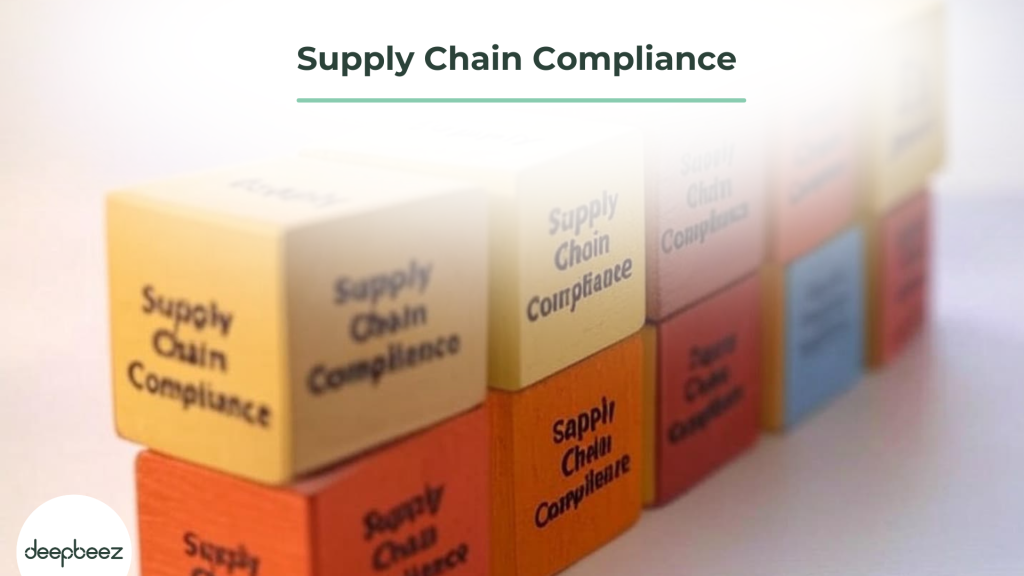What is supply chain compliance? Compliance in supply chain management ensures that suppliers, logistics companies, manufacturers, and other industry players meet specific requirements set by government agencies and international organizations to maintain safety and security in supply chain processes. It also involves meeting required legal and ethical standards.
